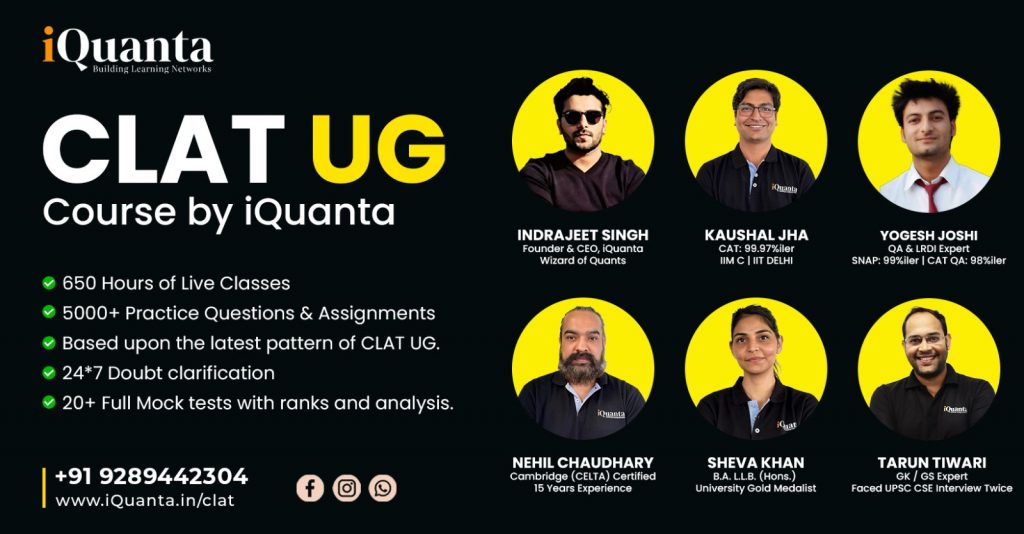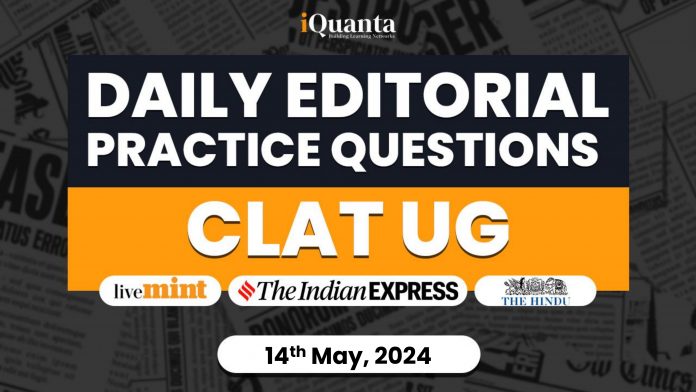Passage 1
Last week, while hearing a case to decide whether the government can acquire and redistribute private property, a Bench of the Supreme Court led by Chief Justice of India D Y Chandrachud decided to take up another issue of “radical constitutional consequence.”
This Article protects laws enacted to ensure the “material resources of the community” are distributed to serve the common good (Article 39(b)) and that wealth and the means of production are not “concentrated” to the “common detriment” (Article 39(c)).
Article 39 of the Constitution lists certain directive principles of state policy, which are meant to be guiding principles for the enactment of laws, but are not directly enforceable in any court of law.
Source – https://indianexpress.com/article/explained/explain
Get CLAT Online Coaching!

Passage 2
Two countries have alleged India of giving subsidies to a product, farmers far exceeding limits set in global trade norms.
The two countries told the WTO that they estimated that over the period 2018-19 to 2021-22, New Delhi provided sugarcane subsidy between 91-100%, which was “vastly in excess of the limits set out” at 10% of value of food production in the case of India and other developing countries. These subsidies or domestic support is called aggregate measurement of support (AMS) in trade parlance. The two countries, in a submission to WTO on Monday, claimed India has not included tis product or its derived products in any of its domestic support notifications since marketing year 1995-96 and therefore the global trade organisation has not been given any information by New Delhi to compare with the findings of the submissions by the two countries.
Source- https://economictimes.indiatimes.com/news/economy/foreigshow/109927731.cms?from=mdr


